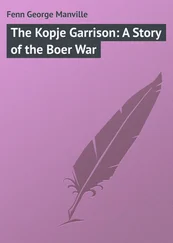George Henty - The Young Carthaginian - A Story of The Times of Hannibal
Здесь есть возможность читать онлайн «George Henty - The Young Carthaginian - A Story of The Times of Hannibal» — ознакомительный отрывок электронной книги совершенно бесплатно, а после прочтения отрывка купить полную версию. В некоторых случаях можно слушать аудио, скачать через торрент в формате fb2 и присутствует краткое содержание. Жанр: foreign_children, foreign_antique, foreign_prose, prose_military, на английском языке. Описание произведения, (предисловие) а так же отзывы посетителей доступны на портале библиотеки ЛибКат.
- Название:The Young Carthaginian: A Story of The Times of Hannibal
- Автор:
- Жанр:
- Год:неизвестен
- ISBN:нет данных
- Рейтинг книги:5 / 5. Голосов: 1
-
Избранное:Добавить в избранное
- Отзывы:
-
Ваша оценка:
- 100
- 1
- 2
- 3
- 4
- 5
The Young Carthaginian: A Story of The Times of Hannibal: краткое содержание, описание и аннотация
Предлагаем к чтению аннотацию, описание, краткое содержание или предисловие (зависит от того, что написал сам автор книги «The Young Carthaginian: A Story of The Times of Hannibal»). Если вы не нашли необходимую информацию о книге — напишите в комментариях, мы постараемся отыскать её.
The Young Carthaginian: A Story of The Times of Hannibal — читать онлайн ознакомительный отрывок
Ниже представлен текст книги, разбитый по страницам. Система сохранения места последней прочитанной страницы, позволяет с удобством читать онлайн бесплатно книгу «The Young Carthaginian: A Story of The Times of Hannibal», без необходимости каждый раз заново искать на чём Вы остановились. Поставьте закладку, и сможете в любой момент перейти на страницу, на которой закончили чтение.
Интервал:
Закладка:
“Yes, it were better so,” Giscon said after a pause; “I dare not continue the enterprise with one who condemns the gods among us; it would be to court failure. I did not dream of this; who could have thought that a lad of your age would have been a spurner of the gods?”
“I am neither a condemner nor a spurner,” Malchus said indignantly; “I say only that I believe you worship them wrongfully, that you do them injustice. I say it is impossible that the gods who rule the world can have pleasure in the screams of dying infants or the groans of slaughtered men.”
Giscon placed his hand to his ears as if to shut out such blasphemy, and hurried away, while Malchus, mounting his horse, rode out slowly and thoughtfully to his father’s villa. He was not at heart sorry that he was freed from this association into which, without knowing the measures by which it intended to carry out its aims, he had rashly entered. He was ready for armed insurrection against the tyrants of Carthage, but he revolted from the thought of this plan for a midnight massacre—it was not by such means that he would have achieved the regeneration of his country. He felt, too, that the reason which he had given Giscon was a valid one. He had no right, at his age, to involve his family in such a conspiracy. Did it fail, and were he found to be among the conspirators, Hanno and his associates would be sure to seize the fact as a pretext for assailing Hamilcar. They would say that Malchus would never have joined in such a plot had he not known that it had the approval of his father, and that he was in fact but the representative of his family in the design for overthrowing the constitution of the republic.
Fortunately for Malchus, a few days later orders were given for the instant embarkation of a portion of the reinforcements destined for Hannibal. Hamilcar was to proceed in command of them, and, busied with his preparation for the start, Malchus thought little more of the conspiracy which was brewing. Thirty large merchant ships were hired to convey the troops, who numbered six thousand. These were principally Libyan footmen. The main body, with the Numidian horse, were to follow shortly. At last the day for embarkation arrived, and the troops defiled through the temple of Moloch, where sacrifices were offered up for the success of the enterprise.
Malchus, under the pretense that something was not ready, at the last moment lingered at home, and only joined his comrades, a hundred young men of the Carthaginian horse, on the quays. This body, all composed of young men of the best families of Carthage, were to sail in the same ship which carried Hamilcar. The scene was a busy one—the docks of Carthage were extensive, and the ships which were to convey the expedition lay in deep water by the quays, so that the troops could march on board. A great crowd of the populace had assembled to view the embarkation. These were with difficulty kept from crowding the troops and impeding their movement by a cordon of soldiers.
As the troops marched on to the quay they were formed up in parties by the side of the ships which were to convey them. Very different was the demeanour of the men of the different nationalities. The Libyans were stern and silent, they were part of the contingent which their state was bound to furnish to Carthage, and went unwillingly, cursing in their hearts the power which tore them from their homes to fight in a war in which they had neither concern nor interest.
Near them were a body of Garamantes, wrapped in the long bernous which then as now was the garb of the children of the desert. Tall, swarthy figures these, lissome and agile, with every muscle standing out clear through the brown skin. Strange as must have been the scene to them, there was no wonder expressed in the keen glances which they shot around them from underneath their dark eyebrows. Silent and taciturn, scarce a word was to be heard among them as they stood awaiting the orders to embark; they were there unwillingly, and their hearts were far away in the distant desert, but none the less would they be willing to fight when the time came. Terrible foes these would be in a night attack, with their stealthy tiger-like tread, their gleaming, vengeful eyes, and their cruel mouths.
Very different were the band of Ethiopians from the distant Soudan, with their cloaks of lion skin, and the gaudy feathers fastened in a fillet round their heads. Their black faces were alive with merriment and wonder—everything was new and extraordinary to them. The sea, the ships, the mighty city, the gathered crowd, all excited their astonishment, and their white teeth glistened as they chatted incessantly with a very babel of laughter and noise.
Not less light hearted were the chosen band of young nobles grouped by the general’s ship. Their horses were held in ranks behind them for the last time by their slaves, for in future they would have to attend to them themselves, and as they gathered in groups they laughed and jested over the last scandal in Carthage, the play which had been produced the night before at the theatre, or the horse race which was to be run on the following day. As to the desperate work on which they were to be engaged—for it was whispered that Hannibal had in preparation some mighty enterprise—it troubled them not at all, nor the thought that many of them might never look on Carthage again. In their hearts perhaps some of them, like Malchus, were thinking sadly of the partings they had just gone through with those they loved, but no signs of such thoughts were apparent in their faces or conversation.
Presently a blast of trumpets sounded, and the babel of voices was hushed as if by magic. The soldiers fell into military order, and stood motionless. Then Hamilcar walked along the quays inspecting carefully each group, asking questions of the captains of the ships as to their store of provisions and water, receiving from the officers charged with that duty the lists of the war machines and stores which were stored away in the hulls; and, having assured himself that everything was in order, he gave the signal to his trumpeter, who again blew a long and piercing blast.
The work of embarkation at once commenced. The infantry were soon on board, but the operation of shipping the horses of the cavalry took longer. Half of these were stored away in the hold of the general’s ship, the rest in another vessel. When the troops were all on board the soldiers who had kept back the crowd were withdrawn, and the Carthaginians thronged down on to the quay. A small space was still kept clear on the wharf by whose side the admiral’s ship was lying, and here was gathered a throng of the aristocracy of the city to see the last of their sons and relatives of the guard.
Having seen their horses safely stowed below the young men crowded to the side of the ship to exchange adieus with their friends. The parting was a brief one, for the wind was fair, and the general anxious to be well out of the bay before nightfall. Therefore the signal was hoisted. Numbers of slaves seized the hawsers of the ships and towed them along through the narrow passage which connected the docks with the sea. A shout of adieu rose from the crowd, the sails were hoisted, and the fleet proceeded on its way.
The arrangements for the comfort of the troops at sea were simple and primitive. Each man shifted for himself. The whole space below was occupied by cargo or horses. The troops lived and slept on deck. Here, on wide flat stones, they cooked their meals, whiled away the day by games of chance, and slept at night on skins or thick rugs. Fortunately the weather was fair. It was early in March, but the nights were not cold.
The fleet hugged the coast, anchoring at night, until the northern shores stood out clear and well defined as Spain stretched down towards Africa. Then they crossed and cruised along until they arrived at Carthagena. Short as was the time which had elapsed since the foundation of that city, its aspect was already imposing and extensive. It lay at the head of a gulf facing south, about a mile in depth and nearly double that width. Across the mouth of this bay was an island, with but a narrow passage on each side, protecting it from the southern winds, and forming with it a magnificent harbour.
Читать дальшеИнтервал:
Закладка:
Похожие книги на «The Young Carthaginian: A Story of The Times of Hannibal»
Представляем Вашему вниманию похожие книги на «The Young Carthaginian: A Story of The Times of Hannibal» списком для выбора. Мы отобрали схожую по названию и смыслу литературу в надежде предоставить читателям больше вариантов отыскать новые, интересные, ещё непрочитанные произведения.
Обсуждение, отзывы о книге «The Young Carthaginian: A Story of The Times of Hannibal» и просто собственные мнения читателей. Оставьте ваши комментарии, напишите, что Вы думаете о произведении, его смысле или главных героях. Укажите что конкретно понравилось, а что нет, и почему Вы так считаете.












